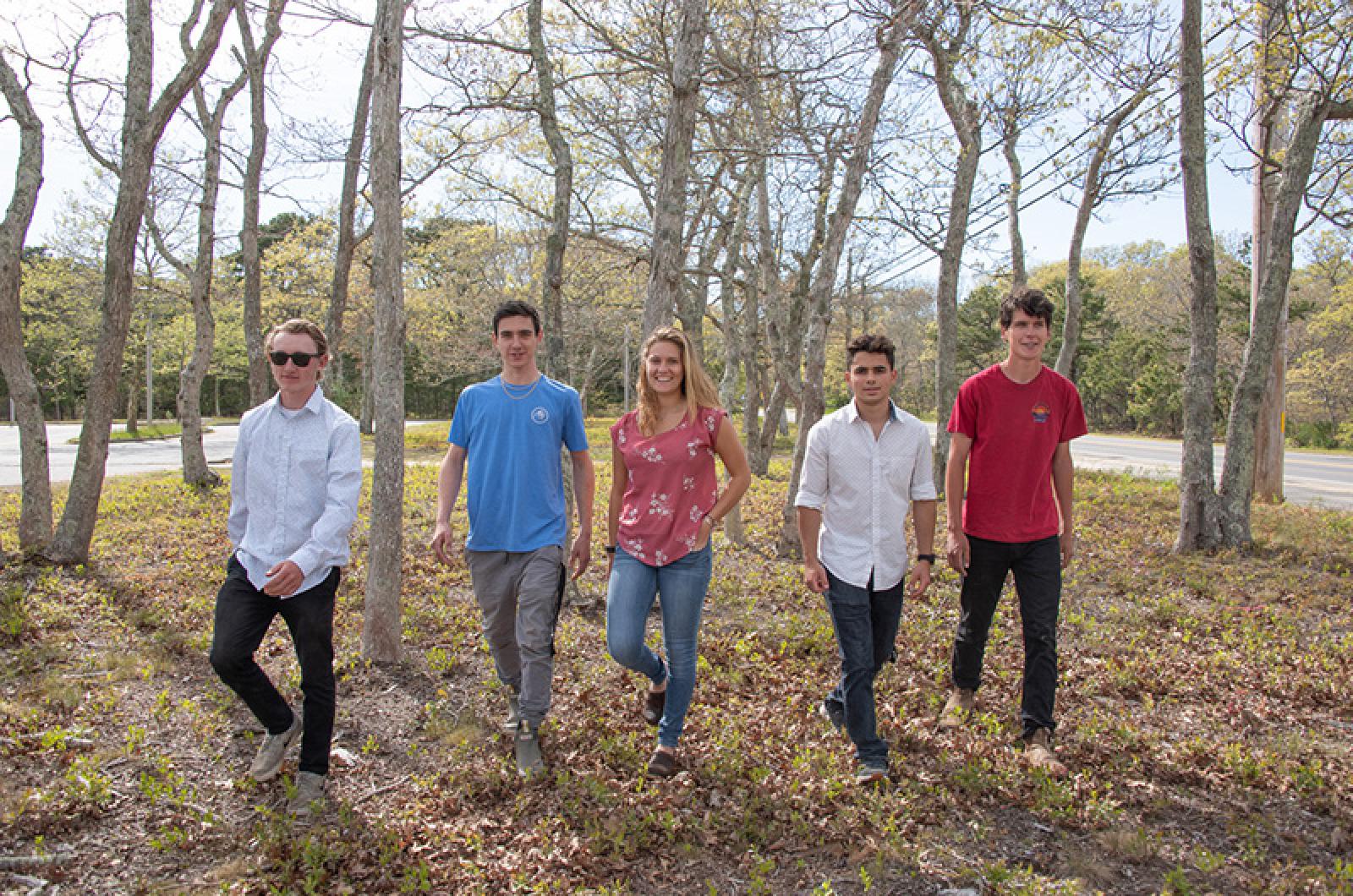Over the past five years, MV Youth has provided dozens of academically high-achieving, year-round Island students with scholarships to prestigious colleges and universities across the country. The unique program fully funds students to the end of their undergraduate degree, allowing valedictorians, salutatorians, math whizzes, history buffs, spelling bee champions and more to attend the college of their dreams.
This year it did something different. Along with scholarships for future lawyers, doctors, professors, businesspeople and wherever else a bachelor’s degree can lead, MV Youth gave out more than $200,000 in five scholarships for a future aviation technician, two electricians, a nurse and a carpenter as part of its workforce development grants. Like other MV Youth grants, the workforce grants will follow the students through their education.
“When we started the college scholarship program it was geared toward traditionally successful students academically,” said MVYouth executive director Lindsey Scott. “All of those kids had a lot in common. They were all very high achieving, many of them had been in classes with each other all four years, most were in the college prep track.”
But the Martha’s Vineyard Regional High School includes more than college track programs. One of only nine comprehensive high school programs in the state, the school offers classes in the building trades, horticulture, culinary arts, automotive maintenance, maritime sciences and health industry as part of its career technical education training program, in conjunction with more traditional college-prep courses. For Ms. Scott, students in those programs represented a large sector of the high school that was ineligible for traditional scholarship funding.
“We realized we were really serving one part of the school, and we wanted to diversify that support,” she said. “Our local needs are health care, building, maritime. We have a lot of jobs in those industries here, and they are year-round. These are high-demand, high-wage industries too. We thought if we could support the kids who are graduating with these interests, we’ll be support a whole different part of our community.”
With the backing of local businesses on the Island and ACE MV, the Island adult education provider, Ms. Scott also pointed out another distinction between traditional MV Youth scholarships and workforce development grants.
“The ripple effect is closer to home,” she said. “These are the kids who are most likely to come back and work here, and if they can secure jobs in the technical industry they are drawn to, they can become successful adult community members, if that’s what they want to do . . . This is entirely to help them launch the life they want to launch. It’s opening a door that has a very hungry demand behind it.”
Although MV Youth has given out three workforce development grants over the past two years, Ms. Scott said they had to seek out the applicants. This year after promoting the application process, it became competitive. There were 18 applicants.
“We got all of it: agriculture, cosmetology, culinary arts,” Ms. Scott said. “It was very confirming to us that there is a group of people to support an Island industry depending on these kids to be trained, and that they had significant financial need.”
MV Youth’s focus on workforce development is part of a larger national trend toward supporting non-traditional four-year college and professional career paths. A 2011 report from the Harvard Graduate School of Education concluded that the skyrocketing cost of college would force employers to focus on new ways to meet their workforce needs with creative alternatives to four-year degrees. In 2016, a study from the National Center for Education Statistics found that only 60 per cent of students complete a college degree after six years.
“We are responding to that,” Ms. Scott said. “There are a number of viable career paths out of high school and into the workforce that are lucrative, stable, challenging and have an unmet need of future employees.”
Josue Dos Santos, one of the five recipients of this year’s workforce development grants, will use his funding to take classes at Cape Cod Community College in business administration as well as courses in electrical technology through ACE MV. The following year, he plans to complete his training while working for Jarred Brissette, an electrical contractor on the Island.
The coalescence of philanthropy, small businesses and adult community education to help provide a year-round Island workforce was part of the vision for the grants, Ms. Scott said. It is also part of ACE MV’s plan as it shifts its focus away from things like cooking classes to more vocational training programs.
“For the past three years, our primary focus has been on . . . workforce development,” said Don Leopold, president of the ACE MV board who is currently serving as interim executive director.
ACE recently graduated 22 students from a master’s in education program, and plans to train 50 Islanders to work on Vineyard Wind’s offshore turbine farm, offering classes in electrical machinery, fluid systems, college algebra and marine system safety. ACE offices recently moved into the high school; future plans include offering more college credit credit courses and general contractor certification for juniors and seniors.
Workforce development has become a focus of other groups as well. The Martha’s Vineyard Fishermen’s Preservation Trust now offers a high school mentorship for young fishermen. The Martha’s Vineyard Vision Fellowship offers financial support for Islanders interested in projects or careers relating to affordable housing, fishing, renewable energy, health care, transportation alternatives, and more. And MV Youth now has 15 Island businesses that have pledged to donate $1,000 per year toward workforce development grants.
“All these puzzle pieces are actually starting to fit together right now,” Ms. Scott said. “And it’s very exciting.”







Comments (3)
Comments
Comment policy »